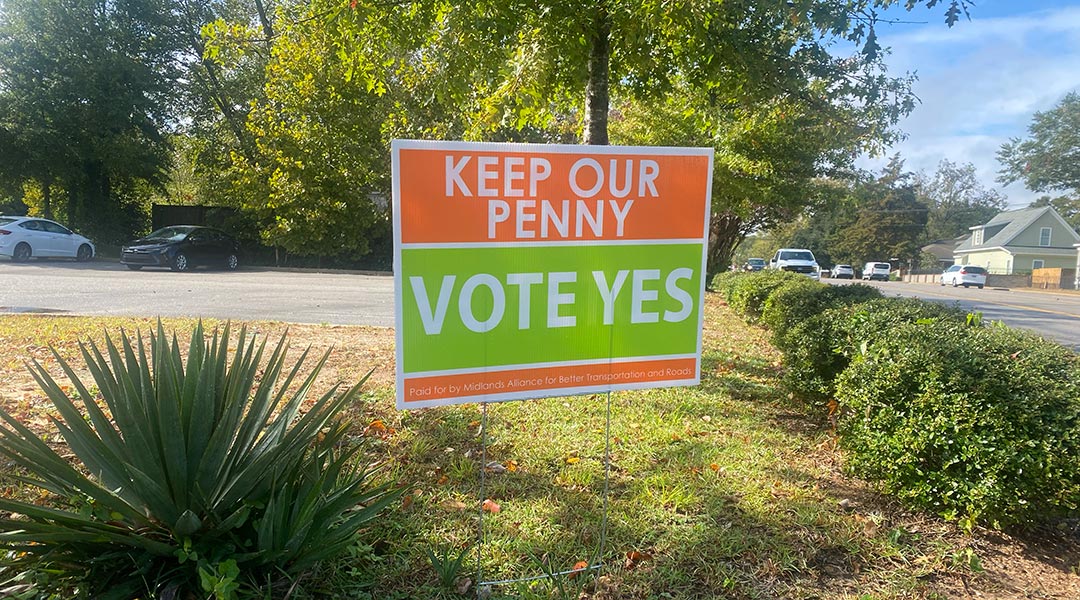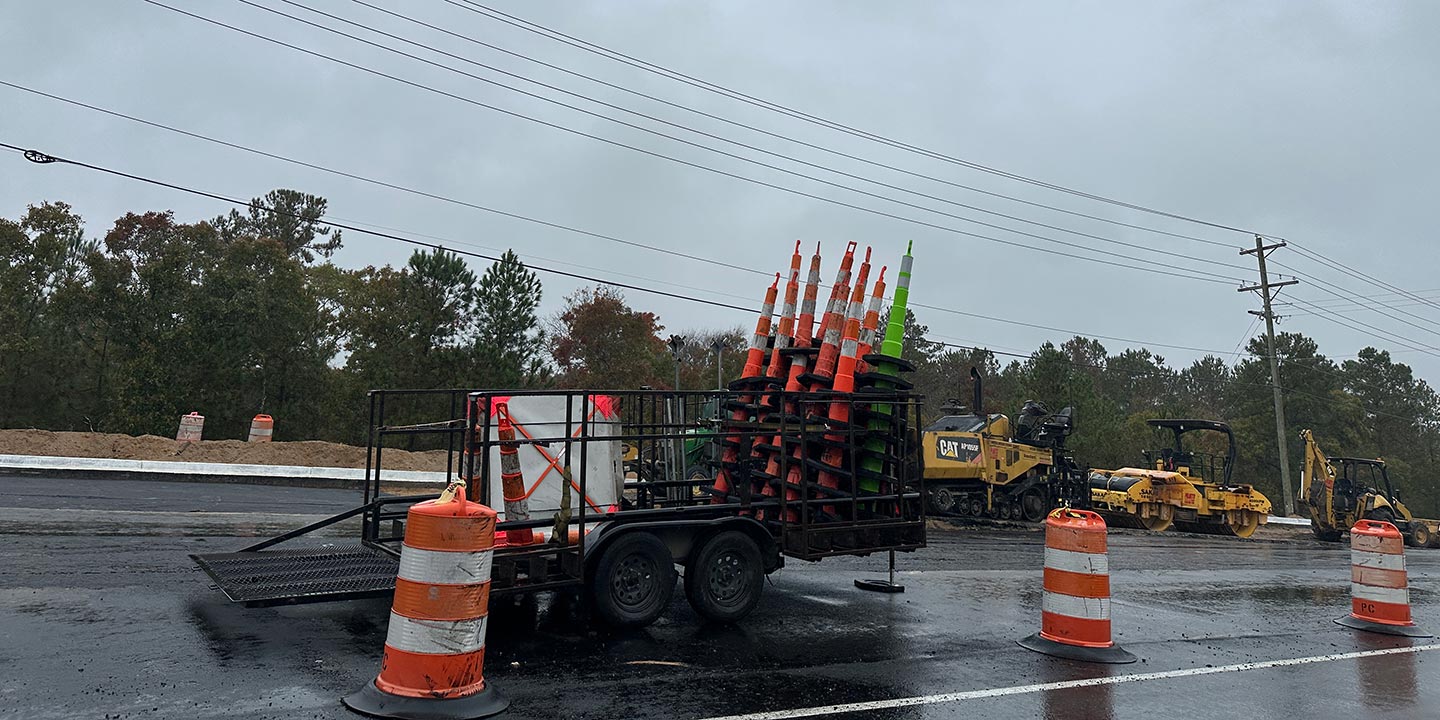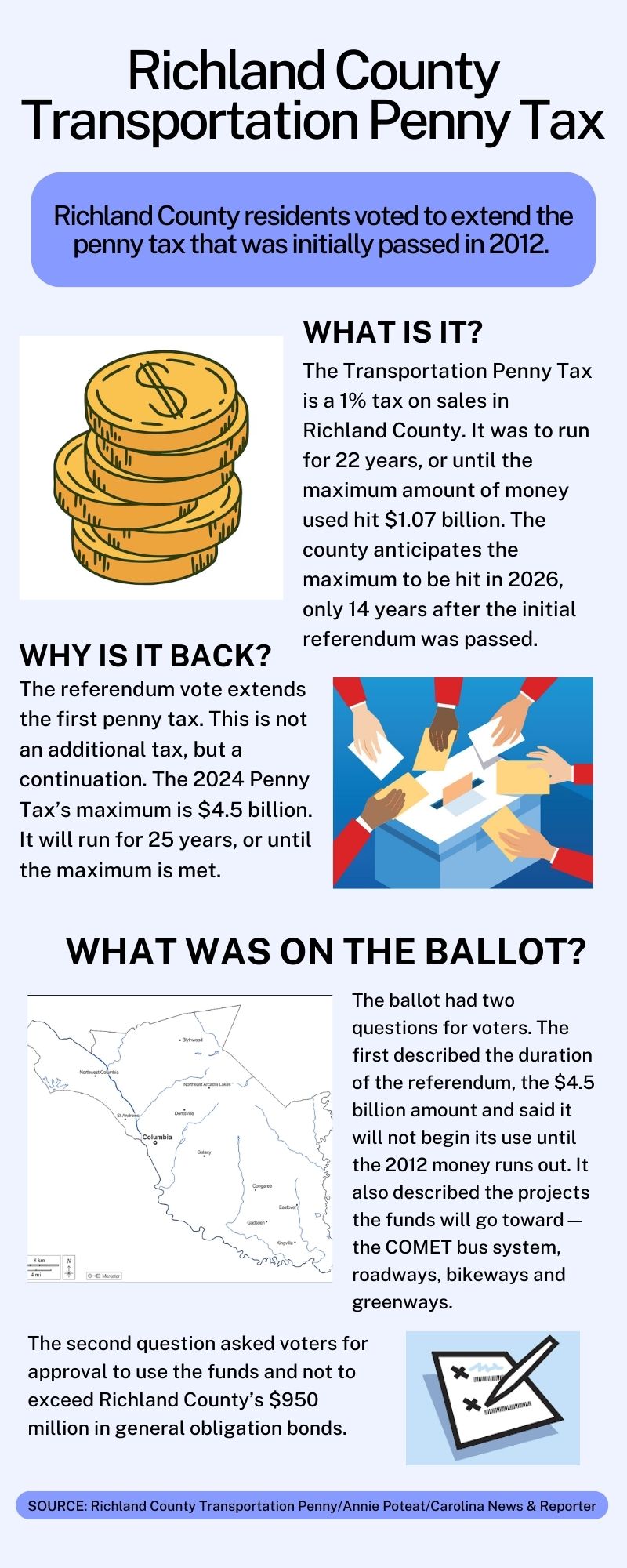A sign at the corner of Rosewood Drive and South Ott Road told people last week to vote for the Transportation Penny Tax. (Photo by Geri Johnson/Carolina News & Reporter)
Voters are speaking out against the Transportation Penny Tax on social media despite its passing for a second time.
Richland County residents voted last week to pass an extension of the transportation penny tax.
It’s a 1% tax on sales in the county that has funded transportation projects for roadways, the COMET bus system, bikeways, greenways and walkways since it first passed in 2012. The 2024 referendum will collect money for 25 more years or until $4.5 billion is collected.
The referendum passed, with 106,998 voters in favor and 67,413 against. The second question on the ballot, which also passed, allows bonds to be issued to launch the projects.
“This is wild to me! Why would you vote yes to be taxed more?!” Heather Jeffcoat posted on Facebook two days after Election Day. “Plus they didn’t do what they said they would do with the money last time. No surprise there.”
The South Carolina Department of Revenue investigated the tax in 2015, accusing the county of misspending funds. It found in 2020 that Richland misspent $32.4 million of penny tax revenue, according to media reports at the time.
Litigation between the Department of Revenue and Richland continued until 2021, when the county agreed to pay back $15.5 million to the penny fund and DOR agreed it found no fraudulent spending.
“We take full responsibility for the implementation challenges and our uneven start,” the county’s Transportation Penny website says. “Due to the nature of this unprecedented project, regulatory questions arose regarding Penny Tax expenses versus General Fund obligations and forming an effective management team. However, after an agreement with the South Carolina Department of Revenue, there was no evidence of fraud or impropriety on our part.”
But many voters still don’t seem to trust Richland County.
“Seems voters in the most corrupt county in SC didn’t learn their lesson the last time,” Karen Rene Christie Hilyer wrote on Facebook the Wednesday after the vote. “How long will it be before these funds are misappropriated yet again?”
More than 500 transportation projects have been completed since the tax began collecting revenue in 2013, according to the county’s Transportation Penny website.
The county began hosting public informational sessions featuring council members to try and increase the transparency of the tax’s spending. But some still don’t think the county is being transparent enough.
“We demand to see detailed accounting information on a regular basis from now on,” Bonnie Kay posted to the social media app Nextdoor the Friday after the vote. “What happened to the previous money collected? Who were the people in charge of said funds? Why should rural areas have to pay for what the city of Columbia wants?”
There’s still money left from the 2012 referendum. The county estimates that money will be spent by late 2026.
Projects still unfunded from the 2012 referendum will be completed first, according to Richland County. The extended tax will choose projects based on the 2024 Richland County Needs Assessment and what criteria the project meets — safety improvements, residents impacted, condition of the area, economic development and public support.
Richland’s penny for transportation paid for, among other things, the Greene Street Bridge over the railroad lines near Huger Street.




